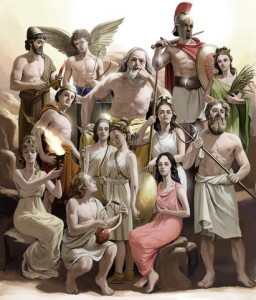The September/October 2012 issue of Stand To Reason’s newsletter, Solid Ground, focuses on this question: Is Mormonism just another Christian denomination? In the author’s forward, Greg Koukl explains,
“In this month’s Solid Ground, I do what the LDS is failing to do. My aim is ‘simply to educate’ on some of the foundational differences between classical Christianity—the Christianity of the last 2000 years—and the Mormon church.
“In this article, I’m not asking if Mormonism is true. I’m only trying to determine if it’s Christian in the classical sense of the term. That’s all. Let’s get the facts clear.”
As one might imagine, the article takes a good look at theological issues. Mr. Koukl writes,
“If Mormonism is a denomination of Christianity, then everything doctrinally central to classical Christianity is also central to LDS theology, and nothing doctrinally central to LDS theology is inconsistent with classical Christianity.”
With that caveat, the article takes a look at the Mormon view of God. Using the 2011 book LDS Beliefs—A Doctrinal Reference by Robert L. Millet, Camille Fronk Olsen, Andrew C. Skinner and Brent L. Top as his reference, Greg Koukl summarizes,
“The Mormon Godhead consists of ‘three beings’ who each ‘possess all of the attributes of godliness in perfection,’ that are ‘a divine community’ sharing ‘no mystical union of substance.’ Instead, they ‘are as distinct in their persons and individualities as are any three persons in mortality.’ (263-264)
“[This] is an explicit affirmation of polytheism. Note, ‘God the first…God the second…and God the third’ are ‘separate and distinct beings.’
“To be fair, Mormonism denies this charge: ‘The LDS belief in… three beings within the Godhead… is not to say that we are polytheistic.’ (263) However, also to be fair, this assertion is hard to take seriously.”
 Noting that there is nothing ambiguous about the word polytheism, Solid Ground defines it for readers: “from poly- (many) and theos (god)—is the belief in or worship of more than one god.” Yet Mormons insist that Mormonism is not polytheistic while still holding to a firm belief in (and worship of) more than one God. Mr. Koukl provides his readers with the Mormon explanation on this seeming contradiction that can be found in LDS Beliefs under the heading “Monotheism”:
Noting that there is nothing ambiguous about the word polytheism, Solid Ground defines it for readers: “from poly- (many) and theos (god)—is the belief in or worship of more than one god.” Yet Mormons insist that Mormonism is not polytheistic while still holding to a firm belief in (and worship of) more than one God. Mr. Koukl provides his readers with the Mormon explanation on this seeming contradiction that can be found in LDS Beliefs under the heading “Monotheism”:
“In the ultimate and final sense of the word, there is only one true and living God…. We believe in one God in that we believe in one Godhead, one divine presidency of the universe… three Gods… three beings… and these three constitute the Godhead, and are one.” (436)
Mr. Koukl urges his readers to “note the qualification” the Mormon authors use in their explanation: “Mormonism is ‘monotheistic’ in the sense that three distinct Gods comprise what was earlier referred to as one ‘divine community.’”
A theology that includes a plurality of Gods is foundational in Mormonism. Joseph Smith taught,
“I wish to declare I have always and in all congregations when I have preached on the subject of the Deity, it has been the plurality of Gods… [Father, Son and Holy Ghost] constitute three distinct personages and three Gods.” (History of the Church 6:474).
Brigham Young:
“How many Gods there are, I do not know. But there never was a time when there were not Gods…” (Journal of Discourses 7:333).
Bruce McConkie:
“Three separate personages — Father, Son, and Holy Ghost — comprise the Godhead. As each of these persons is a God, it is evident, from this standpoint alone, that a plurality of Gods exists. To us, speaking in the proper finite sense, these three are the only Gods we worship. But in addition there is an infinite number of holy personages, drawn from worlds without number, who have passed on to exaltation and are thus gods” (Mormon Doctrine, 576-577).
Nevertheless, Mr. McConkie insisted, “The saints are not polytheists” (Mormon Doctrine, 579).
Greg Koukl concludes,
“A belief in multiple, distinct gods is polytheistic, even if the LDS refuses to call it that. Religious groups are free to define their own beliefs. They are not free to redefine the English language.”
Sixteen years ago when interviewed by the San Francisco Chronicle, BYU professor (emeritus) Truman Madsen was refreshingly candid on the subject:
“People tell us, ‘You don’t believe in one God; you believe in three Gods.’ And the answer is, ‘Yes, we do.’ If that is polytheism then we are.” (“150-Year- Old Debate: Are Mormons `Really Christian’? San Francisco Chronicle, April 8, 1996).
Yes, Dr. Madsen, that is polytheism. Mormonism is a polytheistic religion and is therefore theologically inconsistent with classical Christianity.

Shem,
If you think the truth of the presence of all three persons of the Trinity (Father, Son, and Holy Spirit – all three persons!) at Christ’s baptism contradicts the doctrine of the Holy Trinity, then you have absolutely no understanding of the doctrine. The baptism of Christ is one of the chief Scriptural supports for the doctrine of the Trinity. It is false doctrine to say that God “manifests” Himself as the Son, and then “manifests” Himself as the Father, etc. This is why manifestation is a false way to view God – the Son is not a mere “manifestation” – He is the eternal God Man, forever interceding before the Father on our behalf, forgiving our sins, and giving eternal life to all who believe. It is quite clear from Scripture that God exists from eternity as He has revealed Himself – Father, Son, and Holy Spirit – three persons, One True God.